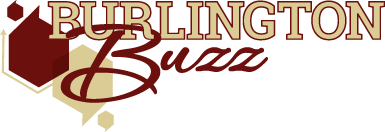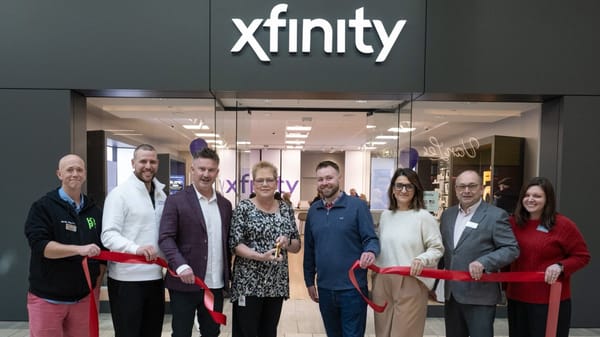Burlington Select Board Debates Special Election for High School Project Funding
A final decision hasn't yet been made on a possible November special election for the addition-renovation project at Burlington High School

Burlington's Select Board is weighing the timing of a special election for the proposed $300-plus million high school project. The school would represent the most costly capital project the town has ever seen by far.
Borrowing for a large capital project like this one requires 2/3 approval from Town Meeting, the town's legislative body, which meets three times a year – January, May, and September. This project, though, unlike others the town has undertaken, will require a full-town vote, as well.
That's because the town's financial buffer would be drained without a budgeting tool known as a debt exclusion.
Since 1982, with the enactment of Proposition 2 1/2, Massachusetts municipalities have been subject to a 2.5% annual cap on property tax levy increases. If a city or town raises taxes by less than 2.5%, the difference builds up a buffer for the town, called excess levy capacity, where they can raise taxes a bit more in a given year if needed.
For the last 40+ years, Burlington has been able to operate within its 2.5% limit and then some, building up a healthy tranche of excess levy capacity. But such a significant financial obligation as the high school will present, even spread over a 30-year payback period, would quickly obliterate this buffer – not to mention the police station and Fox Hill projects, which will be underway when the high school project is likely to begin.
So how do municipalities get what they need while operating within the 2.5% tax levy increase limit? There are two tools that can help: A tax override and a debt exclusion.
- A tax override, also called a 2 1/2 override allows the town to increase taxes more than 2.5% in a given year, and that levy increase stays in effect forever.
- A debt exclusion is tied to a specific project and allows the town to raise taxes to fund that project until it's paid off; in this case, when the high school falls off the debt schedule, the tax increase associated with that project goes away.
Both tools require the Select Board to put the question on a ballot, a process which requires a 2/3 vote (or four out of five Select Board members) in the case of the debt exclusion. The questions need a simple majority of voters to pass.
It's been assumed for some time that the planned addition-renovation project of the high school will require a debt exclusion. The question up for discussion before the Select Board at their June 9 meeting was whether they should hold the vote at a special election in November or wait until the town-wide election, which happens each April.
Doug Davison, chair of the Ways and Means Committee, argued for a quicker timeline. He expressed concern about losing momentum if the project drops out of the public conversation for six months. Owner's Project Manager representative, Terry Hartford, also had concerns. Waiting until the Town Meeting of January 2026 rather than bringing it this September, he said (and waiting until April for the vote rather than holding it in November) amounts to a six-month delay and with cost escalations could add $4 million to $7 million to the project's cost.
On the other hand, Select Board member Nick Priest expressed trepidation about voter turnout for a single-issue special election in November. He notes that current elections already see low participation, with 19% of voters showing up in 2025. He is also concerned that the project – which is still in the feasibility phase – isn't far enough along in the fiscal planning process to have a firm budget.
Hartford and Davison told the Board that cost estimates have stayed stable over the course of the project's feasibility study and Hartford, who has worked with the Massachusetts School Building Authority (MSBA), said, "you will be basing that [cost estimate] on a schematic design, which is the time ... when you would go for this exact type of funding from the community."
Sarah Cawley, another Select Board member, supports the November timeline. She believes a standalone ballot would bring more focus to the issue.
The Select Board hasn't made a final decision yet. They'll revisit the topic in the coming weeks as more details about the project's scope and costs become available. The High School Building Committee plans to present cost estimates to the Board in mid-August in anticipation of the Town Meeting and later town-wide vote.
The Select Board also:
- Approved the new liquor license for Kyuramen, opening this fall, and a transfer from Raja & Rana's to Vittoria's Brazilian Meat Market.
- Accepted a transfer of all the Herb Chambers business licenses to Asbury Automotive Group.
- Accepted easements for water and sewer access on two properties.
- Made appointments to Burlington Youth & Family Services, the Police Department, the Treasurer Collector's Office, and a tenant member of the Housing Authority.
- Proclaimed June to be Pride Month.
- Heard an update on the police station project, which is expected to begin this fall (more to come).





